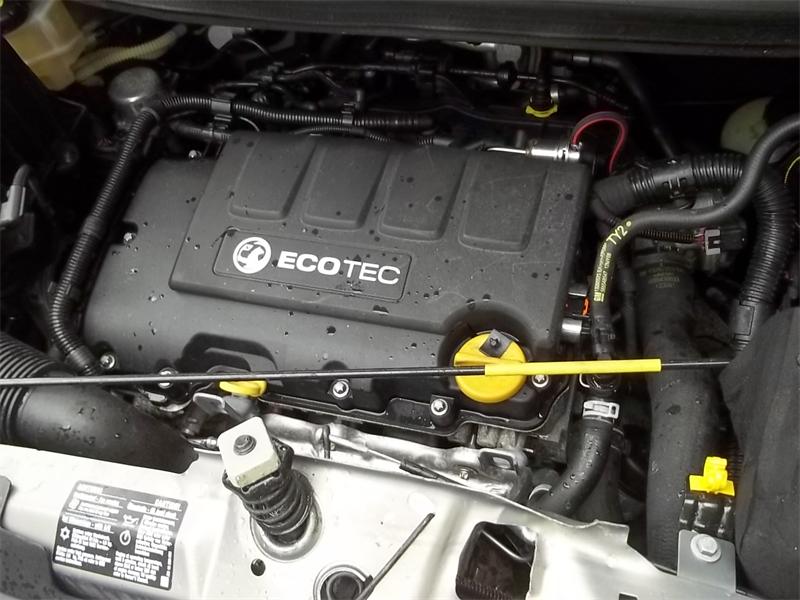Engine Acquiring Specialist Tips on Picking the Right Engine for Your Details Demands
Selecting the right engine for your details requirements involves an intricate interplay of variables that go past mere horse power figures. By diving into the intricacies of power versus effectiveness, assessing gas scores, and budgeting for lasting expenses, one can truly maximize their engine selection.
Power Vs. Performance: Finding the Equilibrium
When selecting an engine, it is essential to strike an equilibrium between power and effectiveness to meet your certain needs successfully. Power refers to the engine's capability to produce energy for propulsion, determining aspects like acceleration, pulling ability, and general efficiency - Opel Corsa 1.4 Engine Price. On the other hand, effectiveness connects to exactly how well the engine makes use of gas to produce power, influencing factors such as gas economy and environmental kindness
Achieving the best equilibrium between power and efficiency is essential due to the fact that an engine that is too effective might take in excessive fuel, bring about greater operating expenses and unneeded pressure on the environment. On the other hand, an engine that focuses on performance over power might result in slow performance, particularly sought after scenarios like towing heavy loads or driving uphill.
To make a notified decision, think about aspects such as your regular driving conditions, the intended use the car, and your personal preferences. By examining your top priorities and needs, you can select an engine that strikes the ideal equilibrium in between power and performance, ensuring optimal efficiency while minimizing environmental impact and operating prices.
Comprehending Engine Size and Type
To further refine the selection procedure of an engine that strikes the optimum equilibrium between power and efficiency, it is important to explore the ins and outs of comprehending engine size and kind. Engine dimension refers to the total volume of air and gas that can be pressed with the engine cylinders. It is typically measured in litres or cubic centimeters. Larger engine dimensions typically result in even more power result yet can additionally bring about lowered fuel efficiency. On the various other hand, smaller sized engine sizes are typically much more fuel-efficient but might give up some power.
Furthermore, engine type plays an important function in establishing the efficiency attributes of an engine. Typical engine types consist of inline engines, V engines, and rotating engines, each with its unique benefits and downsides. The engine kind impacts elements such as the engine's size, weight distribution, and power delivery. Recognizing the interaction in between engine dimension and type is vital in picking an engine that aligns with your details requirements and top priorities, whether it be power, efficiency, or an equilibrium of both.

Consider Your Lorry's Needs
If you are looking for an engine for a durable vehicle that will certainly be made use of for towing, you will need a powerful engine with high torque abilities. On the various other hand, if you are selecting an engine for a small cars and truck largely used for city commuting, fuel efficiency may be a much more essential element to take into consideration.
If you often drive in uneven or mountainous areas, a durable engine with great climbing power will certainly be essential. By lining up the engine specifications with your vehicle's needs, you can make sure that your car runs see page effectively and meets your efficiency assumptions.
Evaluating Gas Effectiveness Ratings
Analyzing gas efficiency rankings is a critical element of selecting the appropriate engine for your automobile, guaranteeing price financial savings and environmental sustainability. Gas efficiency scores, normally measured in miles per gallon (MPG) for gasoline engines or kilowatt-hours per 100 miles (kWh/100 miles) for electrical engines, show exactly how much a car can take a trip on a certain amount of fuel or electricity. Higher MPG or reduced kWh/100 miles values indicate more effective engines, translating to minimized gas costs and reduced carbon exhausts.
When examining gas efficiency scores, consider your driving requirements and behaviors. An extremely fuel-efficient engine can result in substantial savings over time if you commute long distances daily. Furthermore, contrast various engine options within the same automobile course to identify the most cost-effective selection. Factors such as engine size, weight, aerodynamics, and crossbreed or electrical capacities can all influence fuel effectiveness.
Budgeting for Long-Term Expenses
Strategically intending for long-lasting expenses is essential when picking an engine, making certain monetary sustainability over the vehicle's life-span. While the preliminary purchase cost of an engine is a significant variable, it is vital to consider the lasting expenses linked with maintenance, repairs, and gas consumption.
In addition, researching the availability and expense of replacement components for the chosen engine is essential in budget planning. By thoroughly budgeting for these long-lasting expenditures and factoring them right into the decision-making procedure, individuals can select an engine that not only satisfies their prompt needs but also stays economical throughout its life expectancy.
Verdict
Finally, picking the right engine for your specific needs requires balancing power and effectiveness, comprehending engine dimension and type, considering your car's needs, reviewing content gas performance rankings, and budgeting for lasting prices. By meticulously considering these elements, you can make sure that you select an engine that satisfies your requirements and offers ideal performance for your vehicle.
To better improve the choice process of an engine that strikes the optimal equilibrium in between power and performance, it is necessary to dive right into the ins and outs of comprehending engine size and type. Engine dimension refers to the total quantity of air and fuel that can be pressed with the engine cyndrical tubes. Typical engine kinds include inline engines, V engines, and rotating engines, each with its special advantages and disadvantages. Understanding the interaction between engine dimension read what he said and kind is crucial in selecting an engine that straightens with your particular demands and concerns, whether it be power, efficiency, or a balance of both.

Comments on “Discover Competitive Opel Corsa 1.4 Engine Price Options at Car Parts Market”